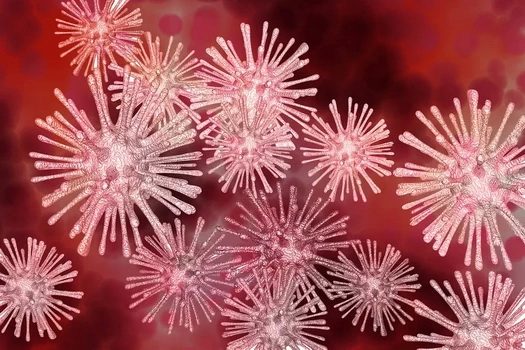
Coronavirus: Why Are We Afraid and What Are We Doing About It?
The Coronavirus used to be a world away, part of another continent we barely thought connected. Just weeks later it’s hit the United States hard, and is effecting our lives in many ways.
Schools are closing, hoarding has started, and the panic is is growing at a startling rate.
So what actually is Coronavirus?
The Coronaviruses are a family of virus. There are many different kinds, and some cause only mild flu like illness while some cause severe symptoms.
A newly identified type of Coronavirus has caused a recent outbreak of respiratory illness now called COVID-19, which began in China.
The new type of Coronavirus does not pass through the air, rather through small fluid droplets from an infected person. Once the virus has managed to enter a new persons body, it settles in the persons lungs, and can only then attach to a persons body and create illness. While there, it replicates, giving the symptoms we come to expect of the COVID-19 virus.
The virus itself causes almost no alarming symptoms in children, many creating little reason to even visit a child’s Doctor. Most children have little to no danger from this virus. Young adults and healthy adults also have little to fear, many finding themselves having flu like symptoms, miserable yes, but not life threatening.
The people who are truly in danger are the elderly, immunocompromised, and those with other worrying illnesses. For them, without a vaccine, COVID-19 is deadly. As the virus grows inside their lungs, they require extra help to breath, sometimes even requiring physical support like a ventilator for weeks before recovering.
So what is it we are so afraid of?
So if its just like the Flu, and most people have little to fear, then why all the hype? What are the Doctors and Politicians so afraid of?
The reason COVID-19 is being taken so seriously is a logistical one.
After becoming infected, a person can remain without symptoms for up to two weeks, all while passing on the virus to others. With that span of time, and the ease of passing on the virus, we can expect EVERYONE to become infected in just weeks.
While most have little to worry about, all of the elderly and ill do. With so many people in the United States needing Intensive care at the same time, we can expect to run out of available hospital beds and lifesaving equipment overnight.
While building makeshift hospitals like they did in Wuhan China is an option, lifesaving ventilators and well trained medical professionals can’t be created overnight.
The fear is that this virus will overload our medical system, creating a situation where we will be forced to make the choice of who shall live, and who shall die.
So what is being done to prevent it?
With the virus already here, and little we can do to stop it, then what ARE we doing? How are all these restrictions helping?
While we can not stop the virus spreading, we may be able to slow it down.
By stopping more infected people from entering the country, and quarantining those we know have the virus along with those who we suspect have it, we can limit the amount of people transmitting the virus. It will undoubtedly continue to spread, but hopefully at a slower rate.
The most prevalent carriers of viruses are children, who pass along these germs in schools, sharing them exponentially on a daily basis. Also, as children show only mild symptoms of the virus, they are likely to be in contact with other children while contagious.
So school closures, not holding large gatherings and restricting travel are what the politicians and governing bodies are trying to do to slow the virus.
If we as a population can work together to slow the virus, we hopefully will be able to better handle the strain on our medical system, as well as buy the medical community time to find effective treatments.
Our best hope is a vaccine, which by all reports is already well under way.
So what can we do to protect ourselves and our loved ones?
We understand the importance of slowing the spread of the virus, but what can we do that will actually make a difference?
As the virus must be passed person to person through close contact, the important things to do are:
- Follow guidelines for Social Distancing and stay away from large gatherings. It will protect everyone as the disease will be unable to pass effectively to other people while people are vigilant.
- As the virus is easily killed, wash your hands multiple times a day with soap and water. If you have hand sanitizer, that works too, as well as most simple cleaning products like dish soap.
- Keep your hands from touching your mouth, nose or eyes. There is little way for the virus to get into your body any other way.
- Protect your loved ones that are susceptible to the virus. Keep others away, even if they show no sign of being ill.
With everyone giving their best effort, we can get through this pandemic and make it just a thing of the past.









